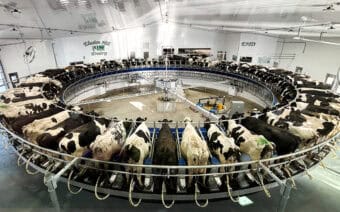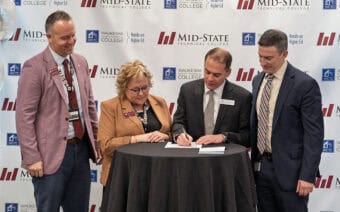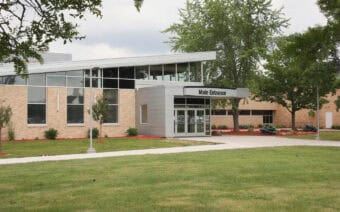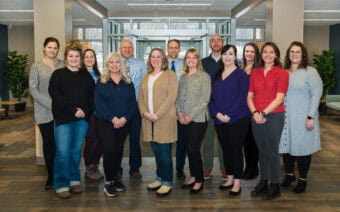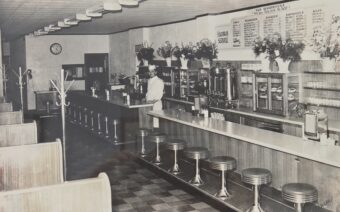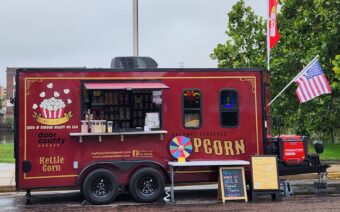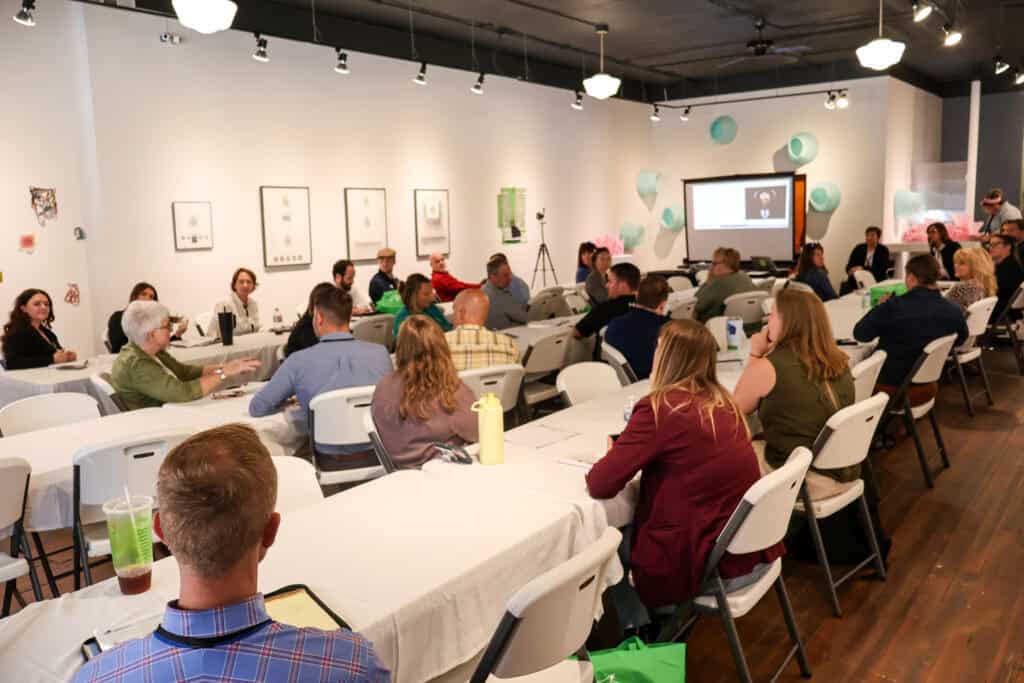
June 9, 2025
WISCONSIN RAPIDS – The City of Wisconsin Rapids is readying itself to host UW-Madison Extension’s second annual Connecting Entrepreneurial Communities (CEC) Conference.
Set for June 16-18, Maggie Cornelius – a UW-Madison Extension outreach specialist and one of the conference organizers – said the CEC conference is a hands-on, immersive event designed to help strengthen rural Wisconsin’s entrepreneurial ecosystem.
Unlike other entrepreneurial conferences, Cornelius said the CEC Conference focuses on what works in small towns and addresses the distinct challenges and opportunities that rural communities face in bolstering entrepreneurship.
“(It is) designed for rural audiences, specifically rural members of the entrepreneurial ecosystem,” she said. “So, anybody who’s in a position to help entrepreneurs start businesses in rural communities around Wisconsin (are encouraged to attend). That would include rural economic developers, rural government leaders, community champions, as well as rural entrepreneurs themselves.”
Cornelius said the goal is for conference participants to take home new ideas about digital commerce, agritourism and public-private partnerships.
Attendees have the opportunity to choose from 16 different breakout sessions, where Cornelius said they’ll gain insights into such topics as rural tech hubs, youth entrepreneurship, how to leverage an online presence for any business and how to redirect a local economy after economic shock – something “the Rapids” had to do after the Billerud-owned paper mill closed its doors in July 2020.
Kayla Rombalski, community development educator in Wood County and another conference organizer, said the City of Wisconsin Rapids was so deeply rooted in the paper industry, that when that “industry turned over and was no longer a thriving economic partner in our community, the question was ‘what else does Wisconsin Rapids have?’”
“I want people to see this underdog story about how the community has come back from an economic loss and how we are being innovative, nimble and working to make our community a better place,” she said. “We are also working to support all businesses and industries in our community so that we never see an economy that’s so tied up in just one industry where if it leaves, it’s not felt as strongly.”
Defining what rural really means
When many people hear the word “rural,” Rombalski said they think of the country, cows and agriculture.
And while those are all very important parts of rural communities, she said they are by no means the sole differentiators.
“I think it is a common misconception that when people hear the word ‘rural,’ they think cows, pastures and very few people,” she said. “The point of this conference – and a lot of the work I do is – to show the vibrancy that occurs in small communities. It’s to show that these small towns can grow to be bigger, and that they can be really great places to start businesses.
Business growth and development, Rombalski said, affects so much in a community.
“Smaller communities can also be the site for technical and technologically-driven work and creations,” she said.
Though it might come as a surprise to some, Rombalski said 30% of Wisconsin’s population – nearly one-third – lives in rural areas.
“Agriculture is an important part of Wisconsin’s rural economy and is historically the foundation of many of these smaller communities,” Cornelius said. “Manufacturing is also another big employer in rural parts of Wisconsin.”
Rural, she said, is a term that has different definitions based on who you’re talking to.
“The U.S. Census Bureau defines rural based on population density and housing density – so areas with fewer than 5,000 people or fewer than 2,000 housing units,” she said. “The Office of Management and Budget focuses on economic ties, and it includes small urban areas as part of its rural classification. For purposes of our conference, we were looking for a host community that was less than 15,000-20,000 people.”
Cornelius said rural Wisconsin, or rural areas across the country in general, for that matter, are seeing a decline in many indicators for rural prosperity, in terms of incomes, population or, in some cases, availability of jobs, or types of businesses making up a rural economy.
“The intention behind this whole project we’re working on, which this conference is a part of, is to encourage rural prosperity through entrepreneurship – helping rural communities maintain vitality and a high quality of life for their residents through economic growth,” she said. “Entrepreneurship is a way that rural communities especially can spur economic growth.”
Not a typical conference
Though most conferences are held in convention centers or something similar, Cornelius said the CEC conference takes place where small businesses are located.
“The conference is being held in 10 different locations across Wisconsin Rapids,” she said. “The sessions are hosted by different local businesses and community institutions around downtown Wisconsin Rapids.”
The first day of the conference, Cornelius said, will take place on the east side of the Wisconsin River – which runs through the city – with the second day’s events taking place on the west side.
“Conference attendees will have a chance to tour local businesses while attending breakout sessions and also get to know Wisconsin Rapids better,” she said. “Everything is within a five-minute walking distance of each other. There’s a 30-minute break between breakout sessions so people can check out the various businesses, connect with other attendees, grab a coffee, etc. We’ve designed it for people to be able to enjoy the experience.”
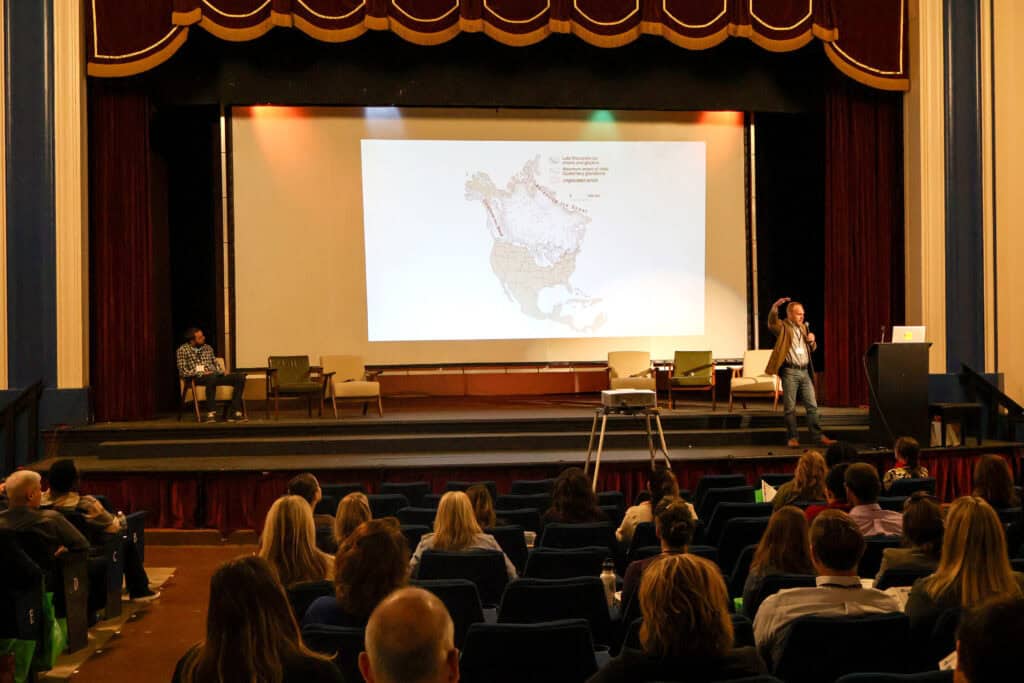
Cornelius said the conference’s set-up provides attendees with an opportunity to see entrepreneurs in action, while giving the city a chance to highlight some of its businesses.
Many of the conference’s breakout sessions, she said, will take place in non-traditional settings – including in places such as an art studio, a local brew pub, a wine bar, the library, the courthouse and city hall, among others.
One of the sessions, Rombalski said, focuses on the Center on Rural Innovation – a Michigan-based organization focused on helping smaller communities across the country rethink the idea of a tech hub.
“California’s Silicon Valley is a tech hub – even Madison has a large number of tech-based start-ups – but with the advent of remote work and being able to log in from anywhere, there’s no reason that can’t happen in a small community,” she said.
And, Rombalski said, oftentimes, depending on what someone is looking for, “quality of life is going to be a bit higher in a small community.”
“Prices are a little bit lower, you’ve got more space and you can often get more for your money in a small community and there definitely can be a lot of talent in small communities,” she said.
Across the country, Cornelius said there is a new movement to encourage entrepreneurship as a rural revitalization strategy – “this conference is a way for Wisconsin’s rural communities to tap into that movement and build businesses using the resources that they already have locally.”
“Participants will leave feeling energized and well-informed about what they can do to support entrepreneurship in their own small town,” she said.
Conference details
Rombalski said the CEC Conference will feature 60 speakers.
Some of the other topics that make up the 16 breakout sessions will include:
- Bridging the digital and local economy: why online presence matters
- Redirecting Wisconsin Rapids’ economy after the paper industry left
- Outdoor recreation and agritourism entrepreneurship
- Youth entrepreneurship for rural populations
- Challenges current entrepreneurs are facing
- Entrepreneurship in Wisconsin’s tribal communities
The idea, Rombalski said, is to have something for everybody – including sessions for communities that are just starting out and are trying to figure out how they can grow local business; and sessions for communities that are a little bit more advanced and looking to continue to improve their growth.
“We’re excited to showcase our community,” she said.
One of the conference’s evening activities, Rombalski said, will include a collegiate baseball game.
“The second night, we’ll be out at Rooted in Red, which is an entrepreneurial success story in and of itself,” she said. “This is a fifth-generation-owned cranberry farm. And four of those five generations have been headed up by female leadership. They have also turned their active cranberry marsh into a thriving and successful events business, as well. They’ve received some national recognition for their event space and agri-tourism they have there.”
Besides promoting networking and new learning, Rombalski said the conference will also be a “good time and offer experiential learning events.”
Developing an annual conference
Though this is just the second time Wisconsin is hosting this conference, Cornelius said many other midwestern states host this conference on an annual basis as part of their statewide rural economic development strategy.
In Wisconsin, Cornelius said the CEC Conference is an activity of the Rural Wisconsin Entrepreneurship Initiative – a new program at UW-Extension that provides education, training, research and technical assistance to support entrepreneurial ecosystem development in rural Wisconsin.
“UW-Extension received a grant from the Wisconsin Economic Development Corporation to bring this conference to Wisconsin,” she said. “So, we’ve been working to establish this in Wisconsin. Minnesota hosts this conference annually, as do Nebraska, Kansas, Missouri and Michigan. We’re happy to have it here now.”
Cornelius said “literally dozens of people and groups” have taken part in the organization of this conference.
“This has been a labor of love for a lot of people,” she said. “It’s not just one or five people planning it – it really has been a true collaborative effort from start to finish.”
Though, Cornelius said that, too, can come with its own challenges – in terms of planning and decision-making.
“But that’s even more important as it relates to this topic where we are so focused on collaboration and coming up with creative solutions for rural communities and involving people in the process,” he said.
Approximately 200 people – more than expected, Cornelius said – attended last year’s conference, which was held in Platteville.
At least that many people, she said, are expected this year, with attendance ideally reaching about 250.
“As a conference organizer, for me, one of the takeaways last year was that there’s great interest in this topic in Wisconsin, but that rural communities aren’t always well networked with each other to exchange ideas about what’s working to promote local economic growth and vitality,” she said. “This conference is meant to be a hub for people in rural communities across Wisconsin to come together and share ideas and learn things that they can take back to their communities.”
Cornelius said the CEC conference is hosted by Extension’s Community Economic Development Program, in collaboration with Wood County, Wisconsin Economic Development Corporation/Office of Rural Prosperity, Office of Business and Entrepreneurship, Centergy, Sentry School of Business & Economics at University of Wisconsin-Stevens Point, Mid-State Technical College and the Wisconsin Technical Assistance Referral Tool.
Visit economicdevelopment.extension.wisc.edu/connecting-entrepreneurial-communities-conference/ for more details.
 Hsu’s Ginseng deeply rooted in Marathon County
Hsu’s Ginseng deeply rooted in Marathon County Fourth annual KI classroom furniture giveaway about to get underway
Fourth annual KI classroom furniture giveaway about to get underway


